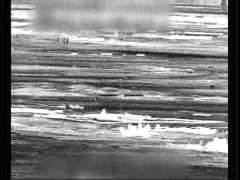



Iraq

SENATE ARMED SERVICES COMMITTEE STATEMENT OF GENERAL DAVID H. PETRAEUS, U.S. ARMY, COMMANDER U.S. CENTRAL COMMAND BEFORE THE SENATE ARMED SERVICES COMMITTEE ON THE AFGHANISTAN-PAKISTAN STRATEGIC REVIEW AND THE POSTURE OF U.S. CENTRAL COMMAND
01 APR 2009
The situation in Iraq has improved dramatically in the past year. Where security
incidents once averaged well over 1,500 per week in the early summer of 2007 when
sectarian violence raged at its peak, there have been less than 150 incidents per week for
the past five months, including criminal violence. These improvements in security and
the increasing capabilities of the Iraqi Security Forces have allowed for a drawdown to
fourteen Brigade Combat Teams, with two more to be reduced this year along with
thousands of “enabler” forces. And we remain on track to end our combat mission in
Iraq by the end of August 2010.
After almost six years of war, the fundamental causes of instability and violence
have diminished, and they are now kept largely in check by a number of factors. The
security effort in Iraq has put an end to large-scale violence, while increasingly capable
and trusted Iraqi Security Forces (ISF) have taken on an expanded role. The Iraqi
government’s moves toward reconciliation have helped lessen some of the tensions in
Iraq’s communal struggle for power and resources, as formerly warring groups have
turned increasingly to political participation rather than violence as a means of achieving
their goals. Moreover, the results of the January 2009 provincial elections indicate a
rejection of the Islamist parties seen as the most under the influence of Iran.
Though the trends in Iraq have been largely positive, progress has been uneven,
and the situation still remains fragile and reversible. A return to violence remains an
option for those who have set aside their arms. Enemy organizations, especially Al
Qaeda in Iraq (AQI) and Iranian-backed Shi’a extremist groups, remain committed to
narrow sectarian agendas and the expulsion of US influence from Iraq. These enemy
organizations will undoubtedly attempt to disrupt or derail several key events during the
next year, including the national elections scheduled for December. However, the most
difficult and potentially violent problem may be the Arab-Kurd-Turkmen competition in
disputed Iraqi territories. Beginning this spring, Iraqis will take up the long-deferred,
contentious question of Iraq’s internal boundaries, which has fundamental implications
for the role of the Kurds in the future Iraqi state and for the likelihood of Sunni Arab and
Turkmen insurgent groups returning to large-scale violence.
The central questions for the United States as these events develop are how to
help the Iraqis preserve hard-won security gains as US forces withdraw and how to
further develop US-Iraq relations that best enable regional stability. The fact that the
2009 Provincial elections were conducted successfully showed that the checks and
balances of the Iraqi constitution and professionalism of the ISF act as a brake upon any
party’s ambitions to control the Iraqi state. However, the Iraqi government has much
work to do to develop the essential services the Iraqi people expect and to perform the
functions necessary to achieve full support over time. The Iraqi government in 2009-
2010 will be under great popular pressure as the Iraqi electorate’s expectations will be
high after electing new provincial and national governments.
US forces and Provincial Reconstruction Teams are still an element that helps
hold the security, governance, and development effort together. In some areas, US
military and civilian officials are still important mediators in local conflicts or disputes
and key interlocutors between local communities and higher levels of the Iraqi
government. Prior to disengaging from those roles, US forces and civilian officials must
ensure certain conditions prevail, including:
• A security force capable of coping with current and intensified enemy action .
• An Iraqi government capable of meeting basic needs and expectations and
delivering services on a nonsectarian, non-ethnic basis .
• Adequate rule of law and sufficiently stable civil institutions.




















